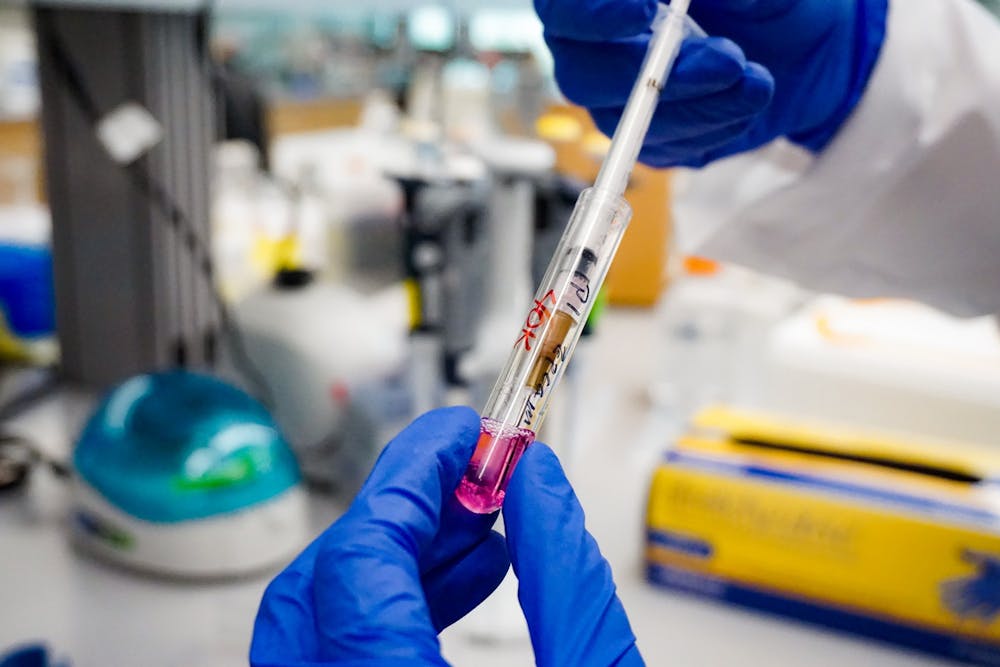Researchers at Penn's Perelman School of Medicine discovered that genetically-edited immune cells can survive in cancer patients, Penn Medicine News reported.
The research team found that manufactured cells were able to kill cancer months after being edited. Penn Medicine News reported that the cells were edited in three ways, making it the first "sanctioned investigational use of multiple edits to the human genome."
Director of the Parker Institute for Cancer Immunotherapy at Penn Medicine and senior author of the study Carl June told Penn Medicine News that the data from the study indicated two developments.
“First, we can successfully perform multiple edits with precision during manufacturing, with the resulting cells surviving longer in the human body than any previously published data have shown,” June said. “Second, thus far, these cells have shown a sustained ability to attack and kill tumors.”
The study was intended to assess the safety of using this gene editing technology on humans.
“Is it safe and feasible?” Penn Med professor and co-author of the study Edward Stadtmauer told The New Scientist. “I think that’s what we demonstrated.”
Wellcome Sanger Institute researcher Allan Bradley told The New Scientist that using CRISPR technology to treat cancer is not without risk, as some of those genetically edited cells might turn cancerous.
“There’s a risk of causing cancer sometime in a patient’s lifetime,” Bradley said. “We need to understand more before rushing into human clinical trials.”
RELATED:
Penn Med study uses blood test to predict prognosis in brain cancer
Penn Medicine hospitals ranked among the top 20 in the country by U.S. News
Penn Med study on CRISPR cancer therapy indicates technique is safe in humans
Stadtmauer told The New Scientist that the team hoped to create “off-the-shelf” cells that could be prescribed to patients, which could lower the cost and time for treatment compared to the traditional gene therapy approach.
“This is the first confirmation of the ability of CRISPR/Cas9 technology to target multiple genes at the same time in humans and illustrates the potential of this technology to treat many diseases that were previously not able to be treated or cured,” June told Penn Medicine News.
Last year, Penn Med researchers used CRISPR/Cas9 editing technology to remove genes from immune cells in three cancer patients, the first study of its kind in the United States.









